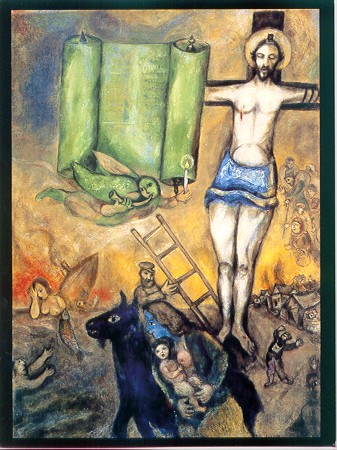Last night, I once again had the pleasure to lead the sermon discussion at Solomon’s Porch. It’s impossible to recount all of the wonderful, beautiful, insightful comments by so many people over two different worship gatherings, but here are a few thoughts. (And if you’re so inclined, I streamed the 7pm sermon discussion from my phone and you can watch the archive of it at Ustream (warning: it’s over an hour long).)
The passage was John 4: 4-42, in which Jesus meets a Samaritan woman at a well at noon. Here are some of the insights that I and others brought to this passage:
Nathan Clair mentioned on Facebook how important it seems that John juxtaposes this pericope with the one just before. In that chapter, Nicodemus, a knowledgable Jew in good-standing, comes under dark-of-night to question Jesus. Even with Jesus explaining and explaining, Nic doesn’t seem to get it.
Meanwhile, a Samaritan woman who is, both ethnically and theologically abhorrent to Jews, gets what Jesus is about. Not at first, for course, but over the course of the chiastic dialogue in Act One of this passage. Here’s how I diagrammed the passage last night:
Truth be told, I basically stole this from my favorite commentary on John by Raymond Brown. But it really shows what John is getting at by telling the story of the woman who patiently seeks the truth from Jesus and is ultimately rewarded with insight into his messiahship.
We also talked about John’s use of irony, introduced here and seen throughout the Gospel. In this case, he puts words into the mouth of the woman which she proclaims with incredulity, but, of course, aslo happen to be true: “Are you greater than our ancestor Jacob, who gave us the well, and with his sons and his flocks drank from it?”
Finally, this: Mr. T made the point that he’d often heard this passage cited as an example of great evangelism: Jesus calls the woman out on her sin of profligacy and it results in her conversion. But, the fact is, Jesus doesn’t mention why the woman has had five husbands, nor does that seem to matter much to him.
What is intriguing, however, is that when she abruptly changes the topic from her husband count to the mountain on which the Samaritans worship, Jesus goes right along with her and launches into a high-falutin’ speech on worship in the Spirit and in truth.
Basically, Jesus is questioning her about her living situation, and she says, “Hey, look over there!” And Jesus goes with it. Interesting…










